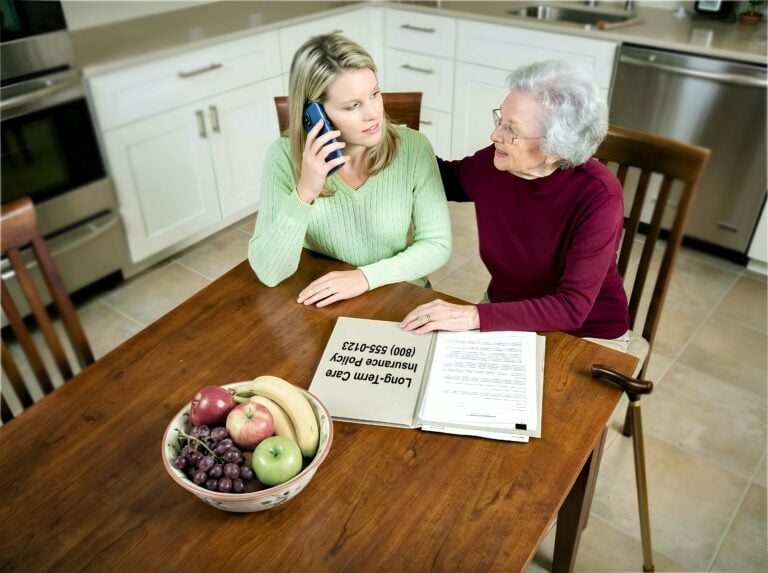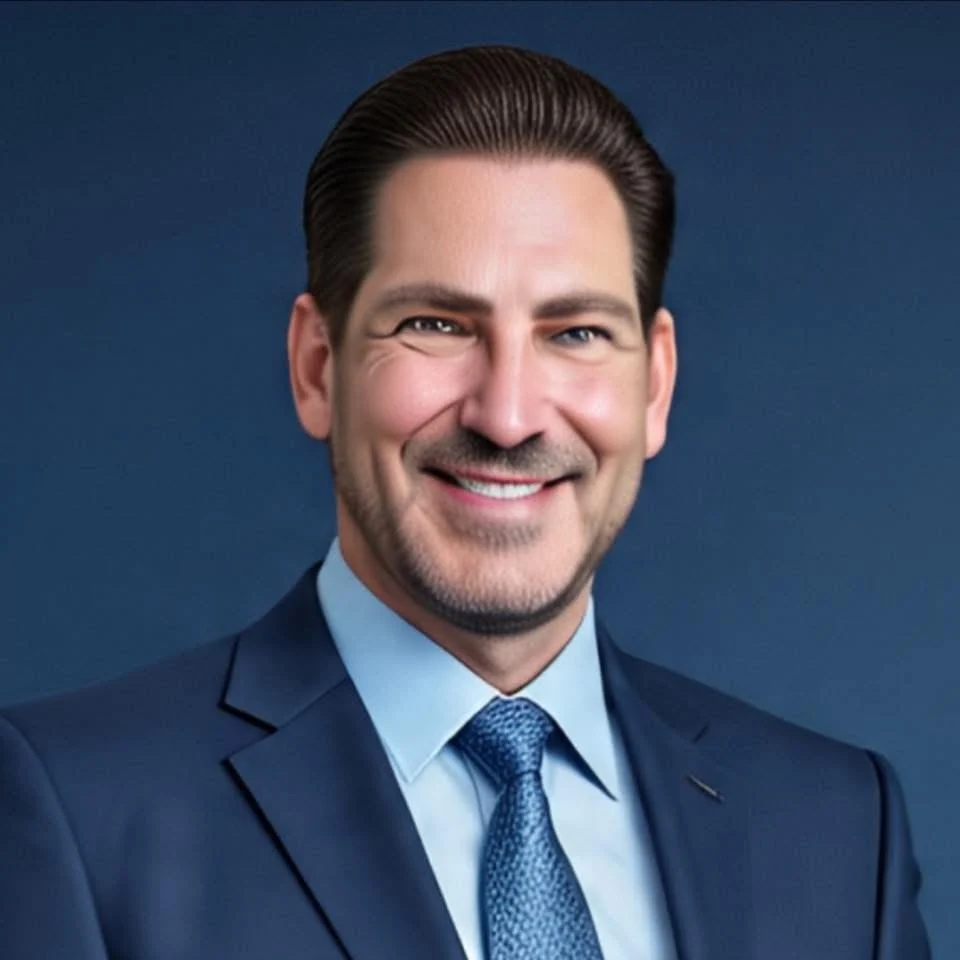Deciding when to begin hospice care for a loved one is never easy. For families in San Diego County, this choice can feel deeply emotional and overwhelming. You may worry that choosing hospice means you’re “giving up” hope. In reality, opting for hospice is not about giving up at all—it’s about providing comfort, dignity, and quality of life during a time when curing the illness is no longer possible.
This compassionate guide will help you understand the signs that it may be time for hospice and the many ways hospice supports both patients and families.
Hospice Care Focuses on Comfort, Not Giving Up Hope
Hospice is a specialized form of care designed for people in the final stages of a life-limiting illness. Its focus is on comfort rather than curative treatment—managing pain and symptoms so your loved one can live as fully as possible each day. Choosing hospice does not mean hastening death or abandoning your loved one. It means you’re prioritizing peace and quality of life.
Comfort care isn’t about “giving up.” It is patient-centered, focused entirely on the patient’s needs, allowing them to focus on living out their remaining time with dignity and surrounded by those they love.
Hospice care typically becomes an option when doctors estimate a person may have about six months or less to live if the illness runs its usual course. However, this doesn’t mean your loved one will be gone in six months—some patients live longer and can continue receiving hospice services beyond that timeframe with a physician’s recertification. Patients can also stop hospice care and return to curative treatment at any time if they wish, or if their condition improves unexpectedly. The goal is to ensure that, whatever time is left, your loved one isn’t suffering needlessly and is surrounded by support.
Signs It May Be Time to Consider Hospice
Every individual is different, but there are common signs that indicate it might be time to think about hospice for your loved one. While no single sign means hospice is required, noticing several of these may be a gentle signal that a comfort-focused approach could help:
• Declining health despite treatment — Your loved one’s health is getting worse over the past few months, even with treatments. If curative treatments are no longer effective at improving their condition, it may be time to shift focus to comfort care.
• No longer seeking aggressive interventions — Your loved one might decide they no longer want painful or intensive treatments and instead wish to spend their time at home with family. When a person’s goals shift to prioritize comfort and quality of life, hospice care may be the right choice.
• Hard-to-manage pain or symptoms — Pain medication isn’t providing enough relief, or frequent distressing symptoms like difficulty breathing, nausea, agitation, or trouble swallowing have become difficult to control. Hospice’s specialized symptom management can provide significant relief.
• Frequent hospitalizations or ER visits — Multiple hospital stays or emergency calls in recent months due to complications indicate the illness is progressing. Hospice care can often reduce these crisis events by providing vigilant in-home monitoring.
• Need for much more help with daily tasks — A person who once could bathe, dress, eat, or use the bathroom independently may now need help with most or all personal care. Spending the majority of the day in a chair or bed signals that hospice support may be needed.
• Changes in alertness or cognition — Confusion, disorientation, withdrawal, agitation, trouble remembering people or places, sleeping much more, or hallucinations are common as an illness advances and can signal that end-of-life care is approaching.
• Little appetite and weight loss — Persistently low appetite or significant unexplained weight loss often means the body is beginning to slow down and could indicate it’s time for hospice’s nutritional support and symptom management.
• Sleeping most of the time — Extreme fatigue and spending a large portion of the day sleeping or resting is normal for someone nearing end-of-life. Profound weakness, drowsiness, or unresponsiveness may indicate that hospice-level care is appropriate.
• Frequent infections or complications — Repeated infections such as pneumonia, urinary tract infections, or sepsis, or other recurring complications show that overall health is very fragile. Hospice can help manage these issues while focusing on comfort.
• Caregiver exhaustion — Feeling overwhelmed, burned out, or unsure if you can meet your loved one’s growing needs is not a failure. Accepting support is often an act of love. Hospice engages a team to share care responsibilities.
These signs don’t mean you must choose hospice immediately, but they are strong indicators that it’s time to have an honest conversation with your family and doctors. If you notice several of these signs, talk with their physician about hospice options. Choosing hospice is about giving your loved one comfort and support when they need it most—not about losing hope.
Benefits of Starting Hospice Care Early
It’s common for families to wait until the last days or weeks of life to call hospice. However, there are significant benefits to starting hospice care sooner rather than later. Hospice is not only for the final hours—patients and families actually receive more support and often better outcomes with early involvement.
Many families who waited until the final days later wish they had called hospice earlier. The median survival after hospice enrollment is just 36 days, and 15.6% of patients die within seven days of enrollment. Starting earlier allows families to receive specialized care and comfort for months instead of days.
What Research Shows About Early Enrollment
Multiple studies have demonstrated remarkable findings about early hospice care. A landmark 2007 study by the National Hospice and Palliative Care Organization found that patients with certain terminal diseases who chose hospice lived an average of 29 days longer than similar patients who did not receive hospice care. Lung cancer patients referred to hospice survived an additional 39 days compared to non-hospice patients.
Research published in the New England Journal of Medicine found that early palliative care for patients with metastatic lung cancer was associated with longer survival—a median of 11.6 months compared to 8.9 months for patients receiving standard care alone. A 2015 study of lung cancer patients showed the hospice group had a longer median survival time of 511 days compared to 402 days for the non-hospice group.
Rather than hastening anything, hospice can extend meaningful time by preventing complications and focusing on holistic well-being. Patients are more likely to stay comfortable, rest better, and maintain their desire to continue living when their emotional well-being and physical health are consistently addressed.
Benefits for the Whole Family
Early hospice admission means more support for the family as well. You have more time to build relationships with the hospice team, learn to care for your loved one, and take advantage of services such as counseling and respite care. It allows for important conversations and emotional preparation for everyone involved.
Instead of waiting until a crisis point when everyone is exhausted, involving hospice early means you have a compassionate care team in place to guide you through each step. Your loved one can make the most of each day, and you can focus on precious moments together rather than scrambling to manage medical issues alone.
What Support Hospice Provides for Patients and Families
One of the biggest comforts of hospice is the wide range of support it offers. Hospice care brings a whole team of professionals to care for your loved one and to support your family’s needs. Knowing what to expect can make the decision feel less frightening.
Expert pain and symptom management:
Hospice physicians and nurses specialize in keeping patients comfortable. They adjust medications to control pain, relieve breathing difficulties, ease nausea, and manage other symptoms as the illness progresses. The hospice team closely monitors your loved one’s condition and is on-call to address discomfort at any time. Patients suffer less and can enjoy a better quality of life day to day.
Care in the comfort of home:
About 66% of hospice patients receive care at home, reflecting a growing preference for remaining in familiar surroundings. Hospice services are usually provided wherever your loved one is living—most often in their own home, a family member’s home, a nursing facility, or an assisted living community. The hospice team comes to you, ensuring the patient can stay in a comfortable, caring environment without frequent hospital trips.
A dedicated care team:
When you enroll in hospice, you get an interdisciplinary care team that surrounds your loved one. This team typically includes a hospice physician, nurses, home health aides, social workers, counselors, and chaplains—all working together to address every aspect of your loved one’s needs. They meet regularly to discuss the care plan and provide guidance and education to family members. Most importantly, they are available 24/7 for questions or assistance, including nights and weekends.
Medical equipment and supplies:
Hospice provides any necessary medical equipment and supplies related to your loved one’s diagnosis, usually at no cost when covered by Medicare or insurance. This may include a hospital bed, wheelchair, oxygen machine, walker, commode, bandages, and medications for pain and symptom control. The hospice arranges delivery and maintenance of this equipment, ensuring your home is safely set up for care.
Help with personal care:
Hospice home health aides assist with bathing, grooming, dressing, toileting, and feeding if needed. Having a compassionate aide provide personal care helps keep your loved one comfortable and gives family caregivers a chance to rest. This support allows you to spend more quality time simply being with your loved one rather than struggling with all the hands-on care alone.
Emotional and spiritual support:
Hospice cares for the whole person, not just their medical needs. Social workers and counselors support emotional needs—offering counseling, addressing practical concerns such as advance care planning, and providing a listening ear for fears and worries. Chaplains or spiritual counselors are available to provide guidance, prayer, or companionship in line with your beliefs. This support can bring great comfort and help everyone find meaning and peace.
Respite and family support:
Many hospice programs offer respite care, meaning your loved one can be cared for in a hospice facility or by hospice staff for a short period—typically up to five days—to give you a much-needed break. Trained volunteers may assist with errands, light household tasks, or sit with your loved one so family members can rest. These services ease the burden on families and help prevent caregiver burnout.
Bereavement support:
The care from hospice continues even after a patient passes away. Hospice teams provide bereavement support to families for up to a year or more after the loss. This may include grief counseling, support groups, memorial services, or regular check-in calls. Bereavement counselors help you process grief in a healthy way and guide you through the difficult adjustments that come after losing a loved one.
Understanding Hospice Coverage in 2026
All of these services are typically part of the hospice benefit. For fiscal year 2026, the Centers for Medicare and Medicaid Services increased hospice payment rates by 2.6%, representing an estimated $750 million increase in Medicare hospice payments. The aggregate annual hospice cap—the maximum Medicare will pay a hospice per patient annually—is now $35,361.44.
Medicare Part A covers hospice care with no cost to you for covered services. The benefit includes two 90-day periods, followed by unlimited 60-day periods, provided a physician recertifies that the patient remains terminally ill through a face-to-face encounter. There is a small copayment of up to $5 for outpatient prescription drugs for pain and symptom management.
California Medi-Cal Coverage
For San Diego families, California’s Medi-Cal program also covers hospice care for eligible recipients certified by a physician as having a life expectancy of six months or less. As of 2024, there is no longer an asset limit for Medi-Cal eligibility, making it more accessible to California families who need help with healthcare costs.
Individuals on Medicare may also dually qualify for Medi-Cal—often called “MediMedi.” This dual eligibility enables access to the benefits of both programs. For Medicare/Medi-Cal eligible recipients, Medicare is the primary payer of hospice care, while Medi-Cal covers coinsurance for drugs and respite care, as well as room and board for those residing in nursing facilities.
Enhanced Quality Standards for 2026
Beginning in October 2025, hospice providers implemented a new quality measurement system called the Hospice Outcomes and Patient Evaluation (HOPE) tool. This replaced the previous Hospice Item Set reporting system and represents the most significant change to hospice quality reporting in years.
The HOPE tool assesses aspects of hospice care across different points in a patient’s experience, including symptom reassessment visits. These in-person follow-ups are required within two calendar days for any pain or symptom rated as moderate or severe. This new standard ensures patients receive timely attention when they’re experiencing discomfort.
For families, these enhanced quality standards mean greater accountability and better tracking of care quality across hospice providers. You can compare hospice quality ratings on Medicare’s Care Compare website at Medicare.gov to help choose a provider that meets high standards of care.
All Heart Home Care Is Here to Help
If you’re considering hospice care for a loved one in San Diego, you don’t have to navigate this journey alone. All Heart Home Care is a locally owned, veteran-owned, nurse-led home care agency that understands how difficult this decision can be. Serving San Diego County since 2014, we guide and support families with knowledge, compassion, and respect.
Our team can help you discuss hospice options, coordinate with local hospice programs, and provide additional in-home care assistance as needed. Whether you need help determining if it’s time for hospice or you simply want to explore care alternatives, our compassionate experts are ready to assist.
Choosing to prioritize comfort and quality of life is never easy. But with the right support, you can ensure your loved one’s final journey is filled with care, love, and dignity.
Call All Heart Home Care at (619) 736-4677 for a free consultation. We’re available to answer your questions and offer guidance specific to your family’s situation. You are not alone—we’re here to help every step of the way.
References
- Centers for Medicare & Medicaid Services. (2025). FY 2026 Hospice Wage Index and Payment Rate Update Final Rule (CMS-1835-F). cms.gov
- Connor SR, Pyenson B, Fitch K, Spence C, Iwasaki K. (2007). Comparing hospice and non-hospice patient survival among patients who die within a three-year window. Journal of Pain and Symptom Management, 33(3), 238-246. PubMed
- Temel JS, Greer JA, Muzikansky A, et al. (2010). Early palliative care for patients with metastatic non-small-cell lung cancer. New England Journal of Medicine, 363(8), 733-742. PMC
- Medicare.gov. Hospice Care Coverage. medicare.gov
- California Department of Health Care Services. Hospice Care Information. dhcs.ca.gov
- National Alliance for Care at Home. (2024). NHPCO Facts and Figures Report, 2024 Edition. allianceforcareathome.org






